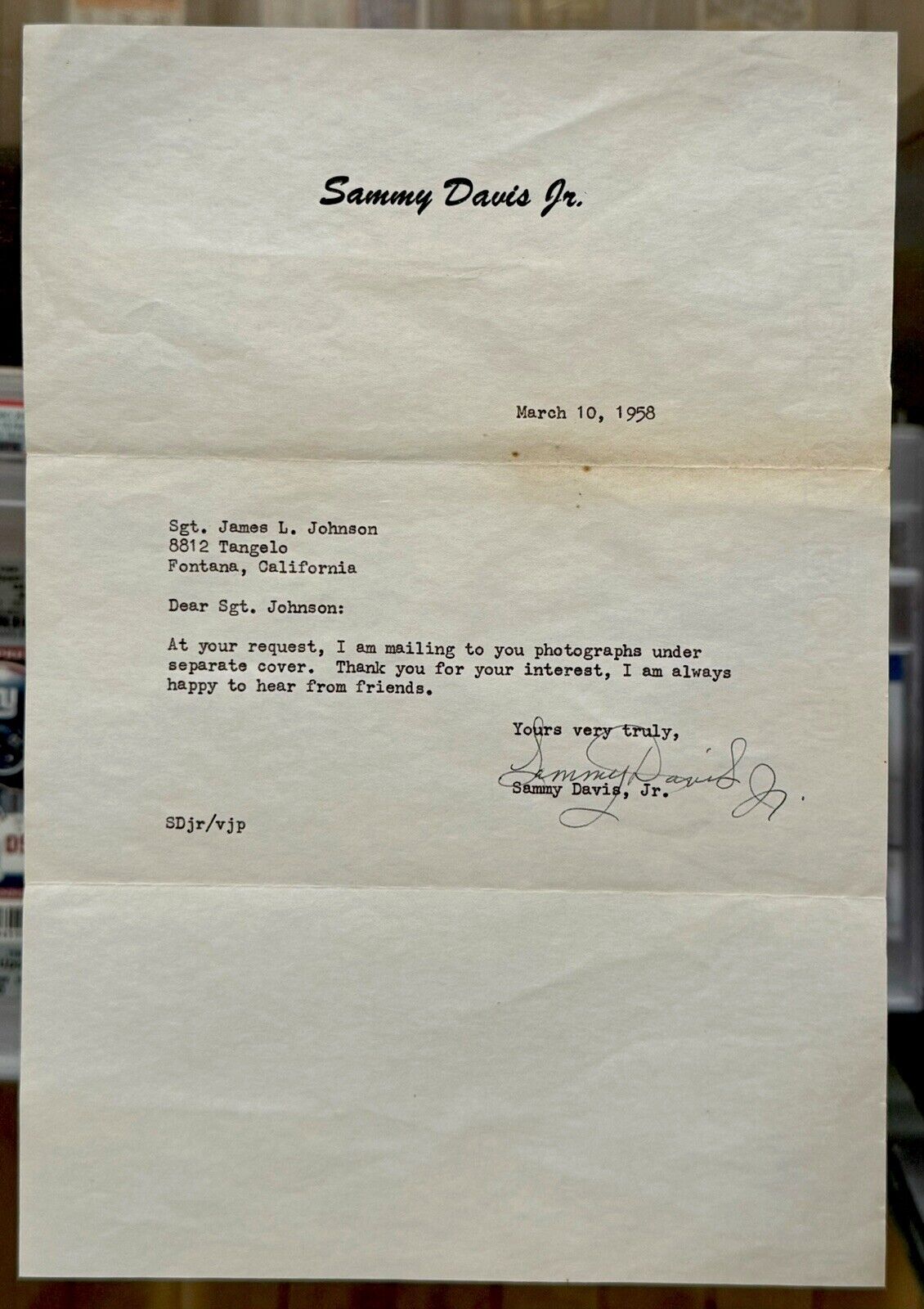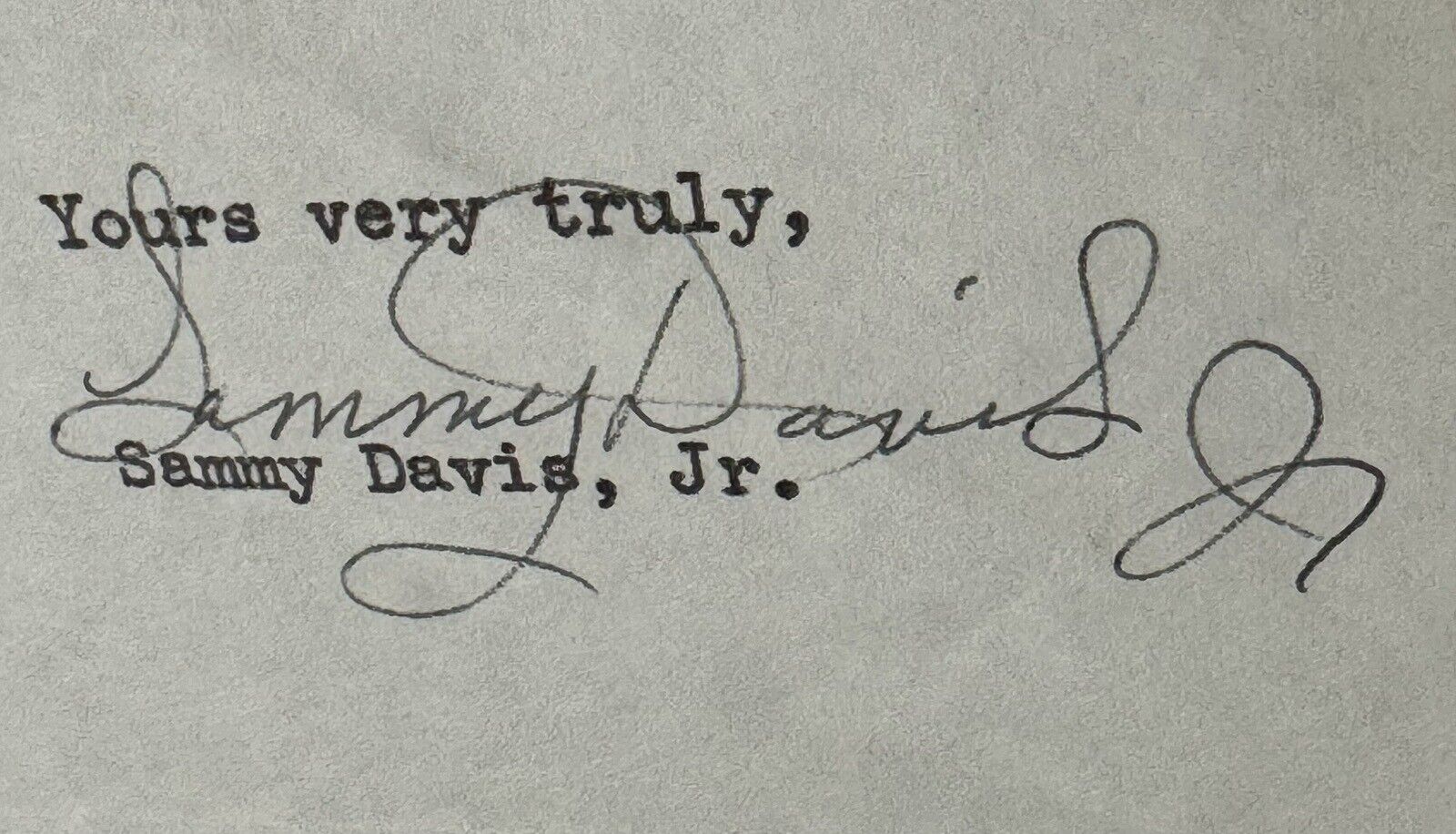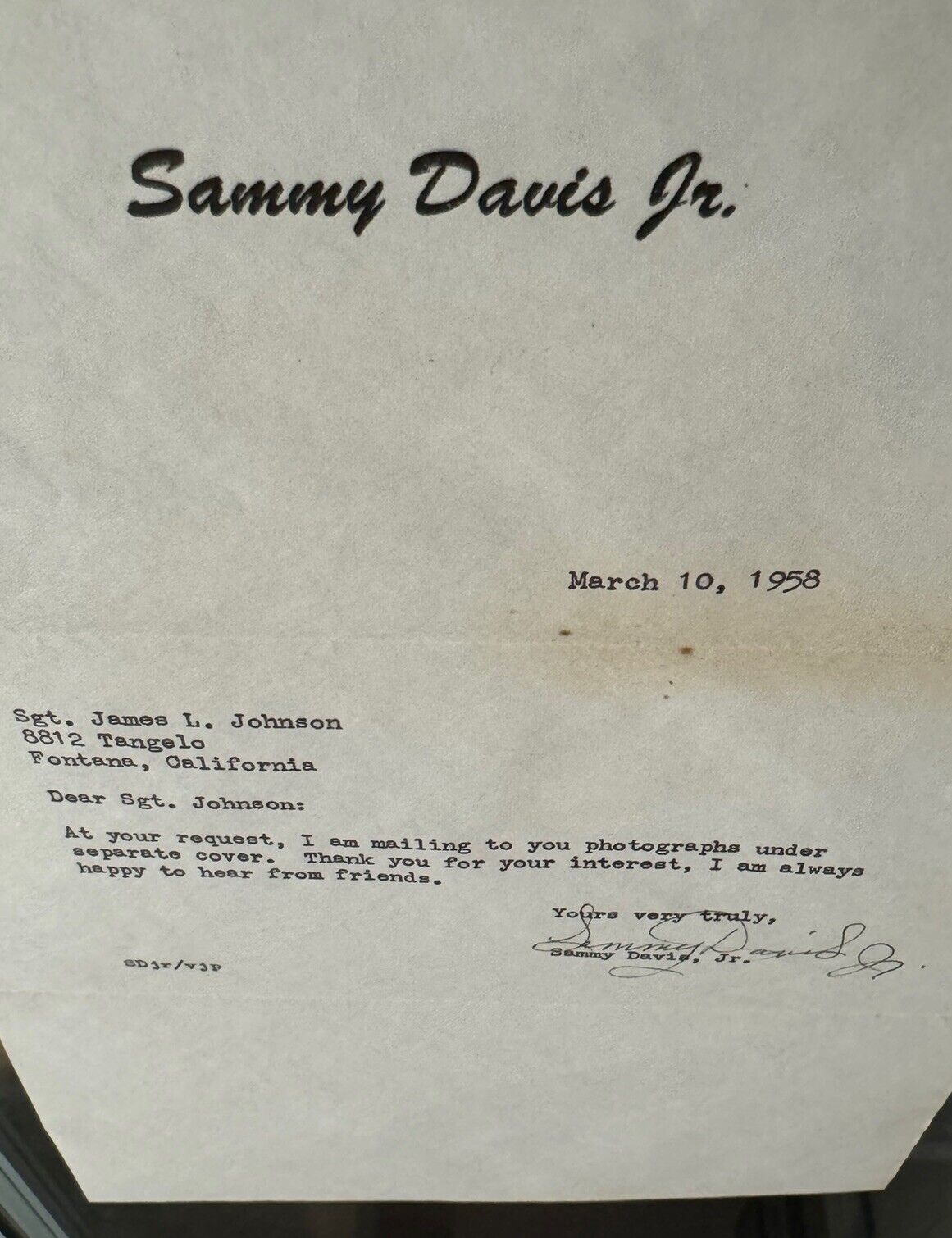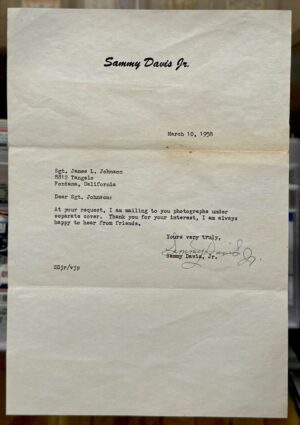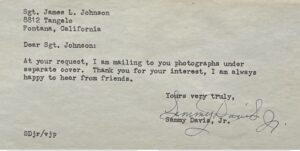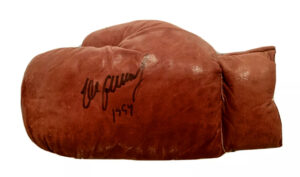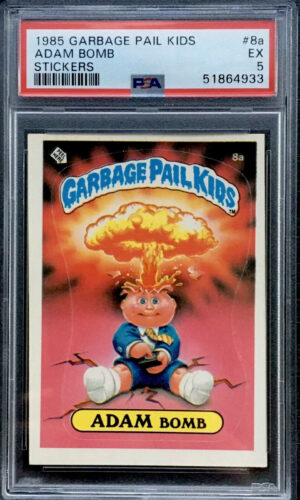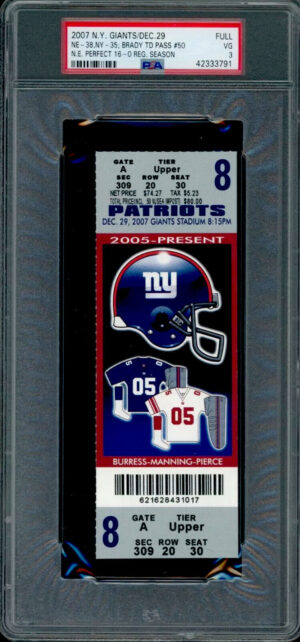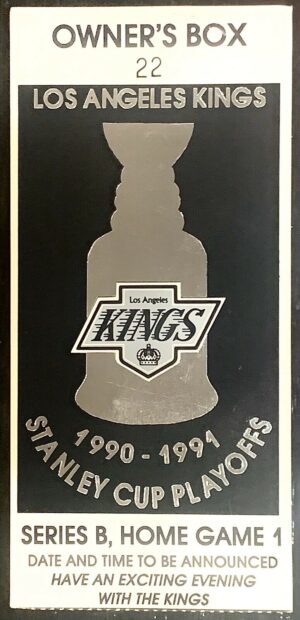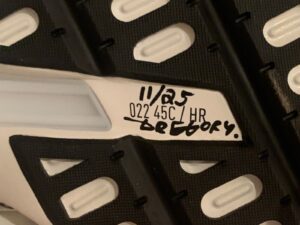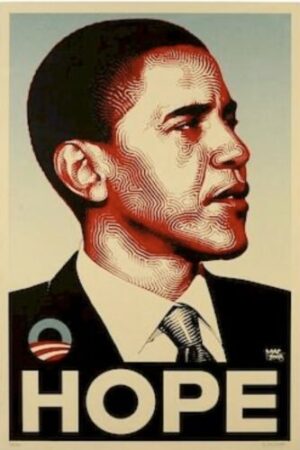Sammy Davis Jr. Signed Letter to Sgt. Johnson on Personal Stationary 1958
$450.00
This unique item is an original letter written by the legendary Sammy Davis Jr on his personal stationary in 1958.
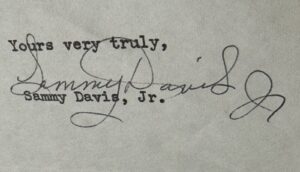
The letter is addressed to Sgt. Johnson and is signed by Sammy Davis Jr himself, making it an exceptional piece of entertainment memorabilia. The letter is related to the Rat Pack movies and comes with a personalized touch, making it an incredible addition to any collection.
The authenticity of the signature is undisputed, making it a rare and valuable find. It has creases from being folded when mailed and a stain underneath the date, 66 years old document!
SERGEANT JAMES EDMUND JOHNSON,
Sergeant James E. Johnson, 25, was posthumously awarded the Nation’s highest decoration for his heroic lone fight on 2 December 1950, to cover the withdrawal of his platoon during the bitter Chosin Reservoir campaign in Korea. When last seen by his comrades he was wounded, but still engaging the enemy in close grenade hand-to-hand combat. The enemy were wearing the uniforms of friendly troops at the time. He was listed as missing in action until January 1954, when his status was officially changed to “presumed dead.”
Sergeant Johnson, a veteran of the Peleliu and Okinawa campaigns in World War II, was the seventh Marine awarded the Medal of Honor for heroism in Korea.
He departed for Korea in August 1950, just five days after the birth of his daughter. The Medal of Honor was presented to his widow on 29 March 1954 by Secretary of the Navy Robert B. Anderson. Medals of Honor were presented in the same Pentagon ceremony to the families of Sgt Daniel P. Matthews and Cpl Lee H. Phillips.
Although Sgt Johnson was serving with a provisional company of the 7th Marines when he earned the Medal of Honor, his regular outfit was the 11th Marines, the same regiment his father had served in during World War I.
James Edmund Johnson was born in Pocatello, Idaho, on 1 January 1926. He attended public schools there and played junior varsity basketball for two years in high school before enlisting in the Marine Corps on 10 November 1943. After serving in the Pacific theater and at San Diego, he was discharged on 7 February 1946, and returned to Pocatello, where he worked as a machinist in the Naval Ordnance plant. He also attended Western Washington College in Bellingham, Washington, before re-enlisting in the Marines on 13 January 1948. He embarked for Korea after a year as an instructor in post exchange accounting at the Marine Corps Institute, Marine Barracks, 8th and I Sts., S.E., Washington, D.C.
In addition to the Medal of Honor, Sgt Johnson’s decorations included the Presidential Unit Citation with one bronze star; the Korean Service Medal with three bronze stars; the Navy Unit Commendation; the Asiatic-Pacific Campaign Medal with two bronze stars; the World War II Victory Medal; and the Navy Occupation Service Medal with Asia Clasp.

